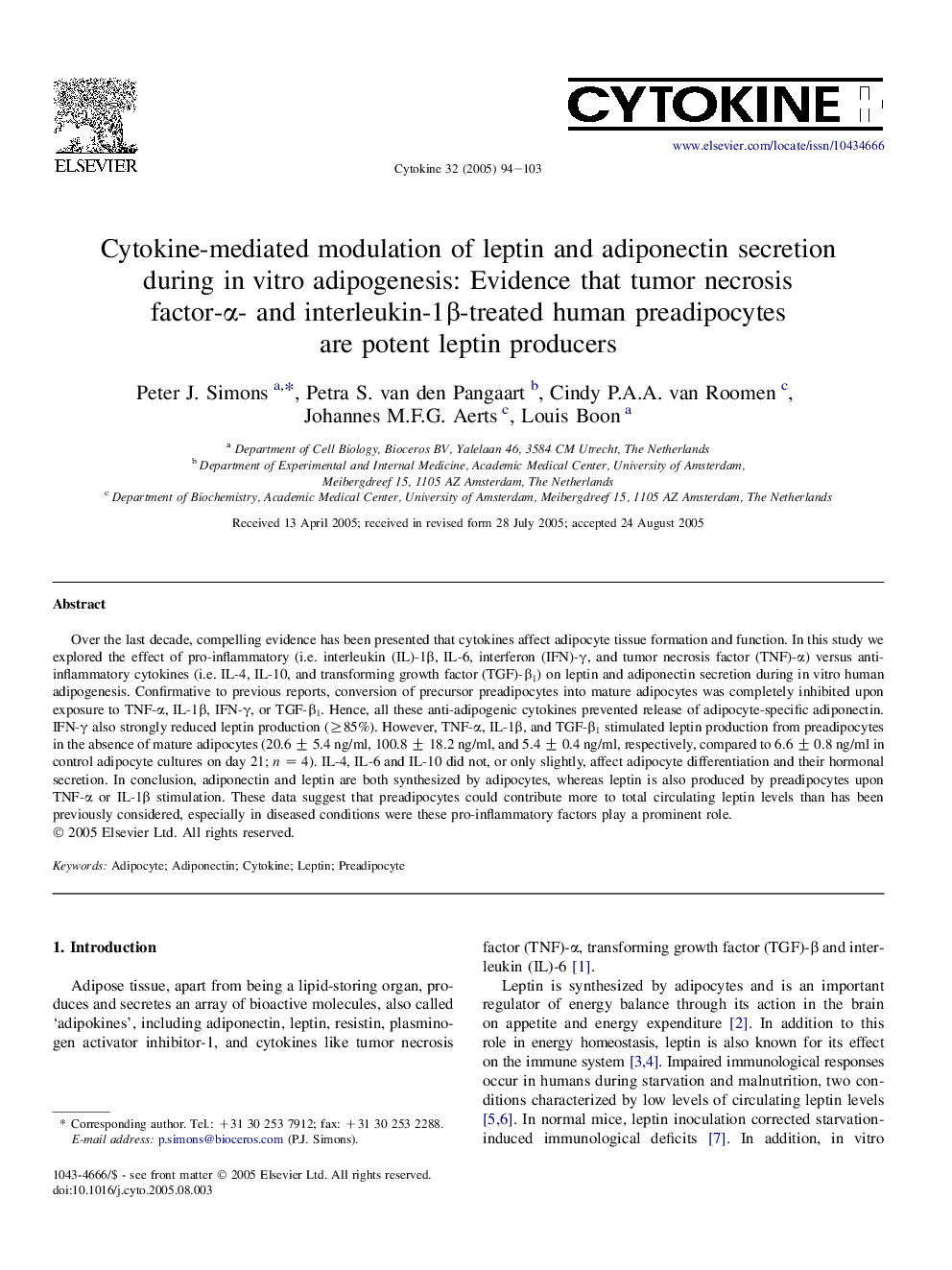| Article ID | Journal | Published Year | Pages | File Type |
|---|---|---|---|---|
| 9110727 | Cytokine | 2005 | 10 Pages |
Abstract
Over the last decade, compelling evidence has been presented that cytokines affect adipocyte tissue formation and function. In this study we explored the effect of pro-inflammatory (i.e. interleukin (IL)-1β, IL-6, interferon (IFN)-γ, and tumor necrosis factor (TNF)-α) versus anti-inflammatory cytokines (i.e. IL-4, IL-10, and transforming growth factor (TGF)-β1) on leptin and adiponectin secretion during in vitro human adipogenesis. Confirmative to previous reports, conversion of precursor preadipocytes into mature adipocytes was completely inhibited upon exposure to TNF-α, IL-1β, IFN-γ, or TGF-β1. Hence, all these anti-adipogenic cytokines prevented release of adipocyte-specific adiponectin. IFN-γ also strongly reduced leptin production (â¥85%). However, TNF-α, IL-1β, and TGF-β1 stimulated leptin production from preadipocytes in the absence of mature adipocytes (20.6 ± 5.4 ng/ml, 100.8 ± 18.2 ng/ml, and 5.4 ± 0.4 ng/ml, respectively, compared to 6.6 ± 0.8 ng/ml in control adipocyte cultures on day 21; n = 4). IL-4, IL-6 and IL-10 did not, or only slightly, affect adipocyte differentiation and their hormonal secretion. In conclusion, adiponectin and leptin are both synthesized by adipocytes, whereas leptin is also produced by preadipocytes upon TNF-α or IL-1β stimulation. These data suggest that preadipocytes could contribute more to total circulating leptin levels than has been previously considered, especially in diseased conditions were these pro-inflammatory factors play a prominent role.
Related Topics
Life Sciences
Biochemistry, Genetics and Molecular Biology
Endocrinology
Authors
Peter J. Simons, Petra S. van den Pangaart, Cindy P.A.A. van Roomen, Johannes M.F.G. Aerts, Louis Boon,
